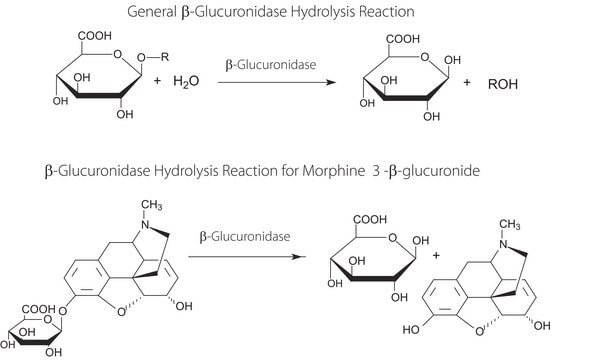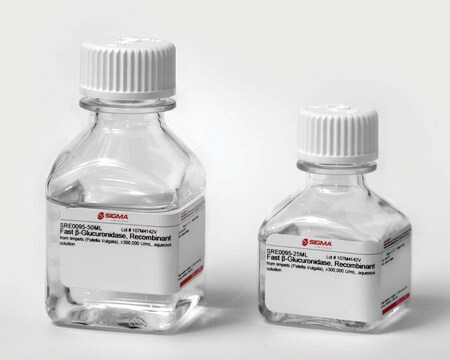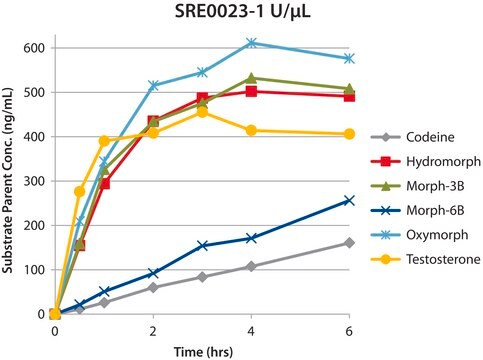G8162
β-Glucuronidase from Escherichia coli
aqueous glycerol solution, ≥5,000,000 units/g protein, pH 6.8 (biuret)
Synonym(s):
β-D-Glucuronide glucuronosohydrolase
About This Item
Recommended Products
biological source
Escherichia coli
Quality Level
form
aqueous glycerol solution
specific activity
≥5,000,000 units/g protein, pH 6.8 (biuret)
mol wt
69-71 kDa
shipped in
wet ice
storage temp.
−20°C
Looking for similar products? Visit Product Comparison Guide
General description
Application
The optimal conditions for the enzymatic hydrolysis of α-hydroxytriazolam, one of the major metabolites of triazolam in human urine, were determined using β-glucuronidase Type IX-A.
It is used as a reporter gene in GUS assays to monitor gene expression.
Learn more
about recent application data generated by Sigma R&D to optimize hydrolysis for different drug classes using enzymes from different sources and the use of a chromatographicaly purified enzyme to reduce the effect of esterase activity resulting in conversion of 6-MAM to Morphine
Biochem/physiol Actions
Unit Definition
Physical form
comparable product
Signal Word
Danger
Hazard Statements
Precautionary Statements
Hazard Classifications
Resp. Sens. 1
Storage Class Code
10 - Combustible liquids
WGK
WGK 1
Flash Point(F)
Not applicable
Flash Point(C)
Not applicable
Choose from one of the most recent versions:
Certificates of Analysis (COA)
Don't see the Right Version?
If you require a particular version, you can look up a specific certificate by the Lot or Batch number.
Already Own This Product?
Find documentation for the products that you have recently purchased in the Document Library.
Customers Also Viewed
Articles
β-glucuronidase (GUS) enzymes are utilized to hydrolyze glucuronide (gluc) drug metabolites to the parent drug, facilitating analysis by LC-MS/MS.
Probiotics exhibit an inhibitory effect on pathogens, help prevent chronic intestinal inflammatory diseases or atopic syndromes, and support the immune system.
Protocols
Objective: To standardize a procedure for the enzymatic assay of β-Glucuronidase.
Our team of scientists has experience in all areas of research including Life Science, Material Science, Chemical Synthesis, Chromatography, Analytical and many others.
Contact Technical Service






